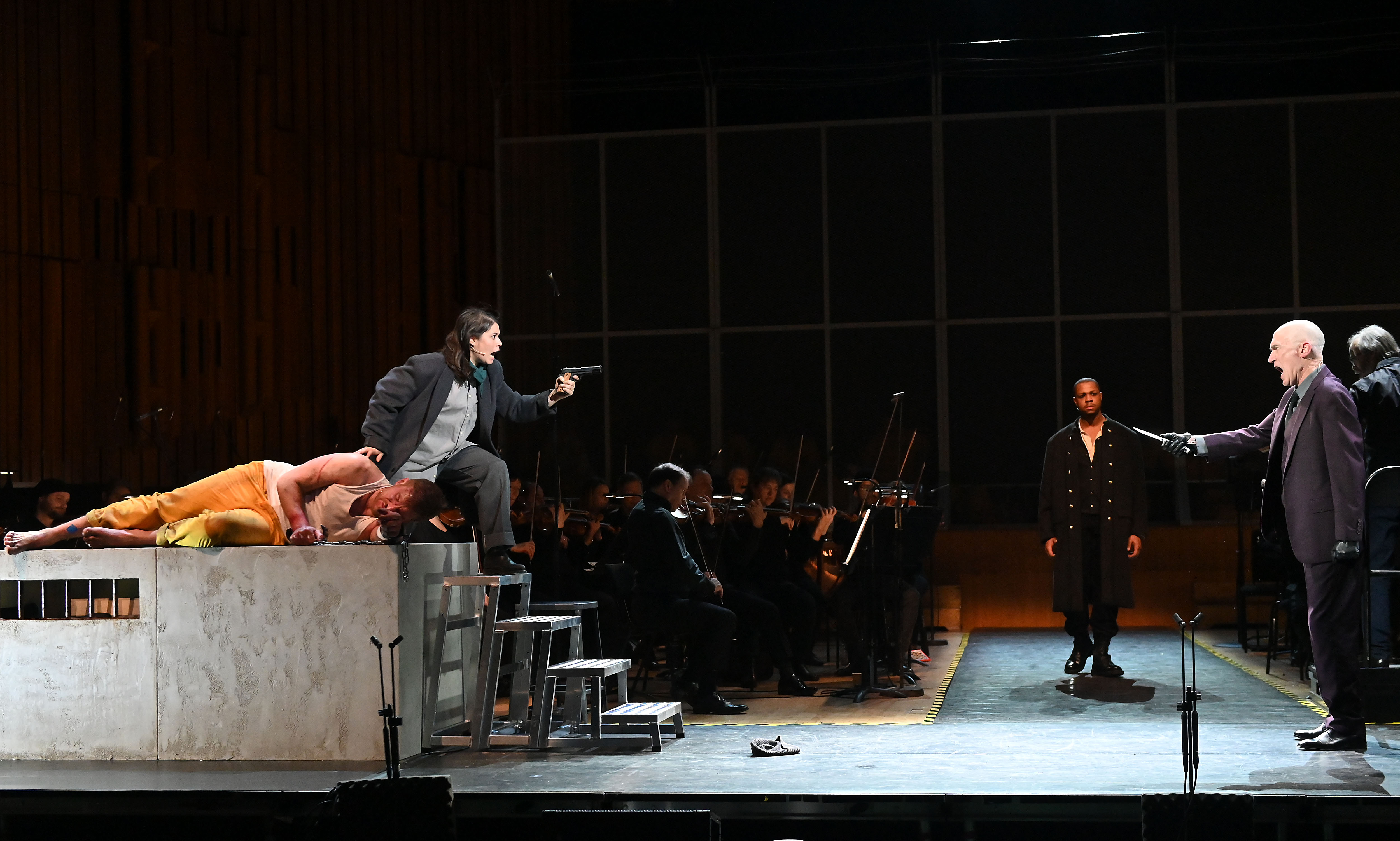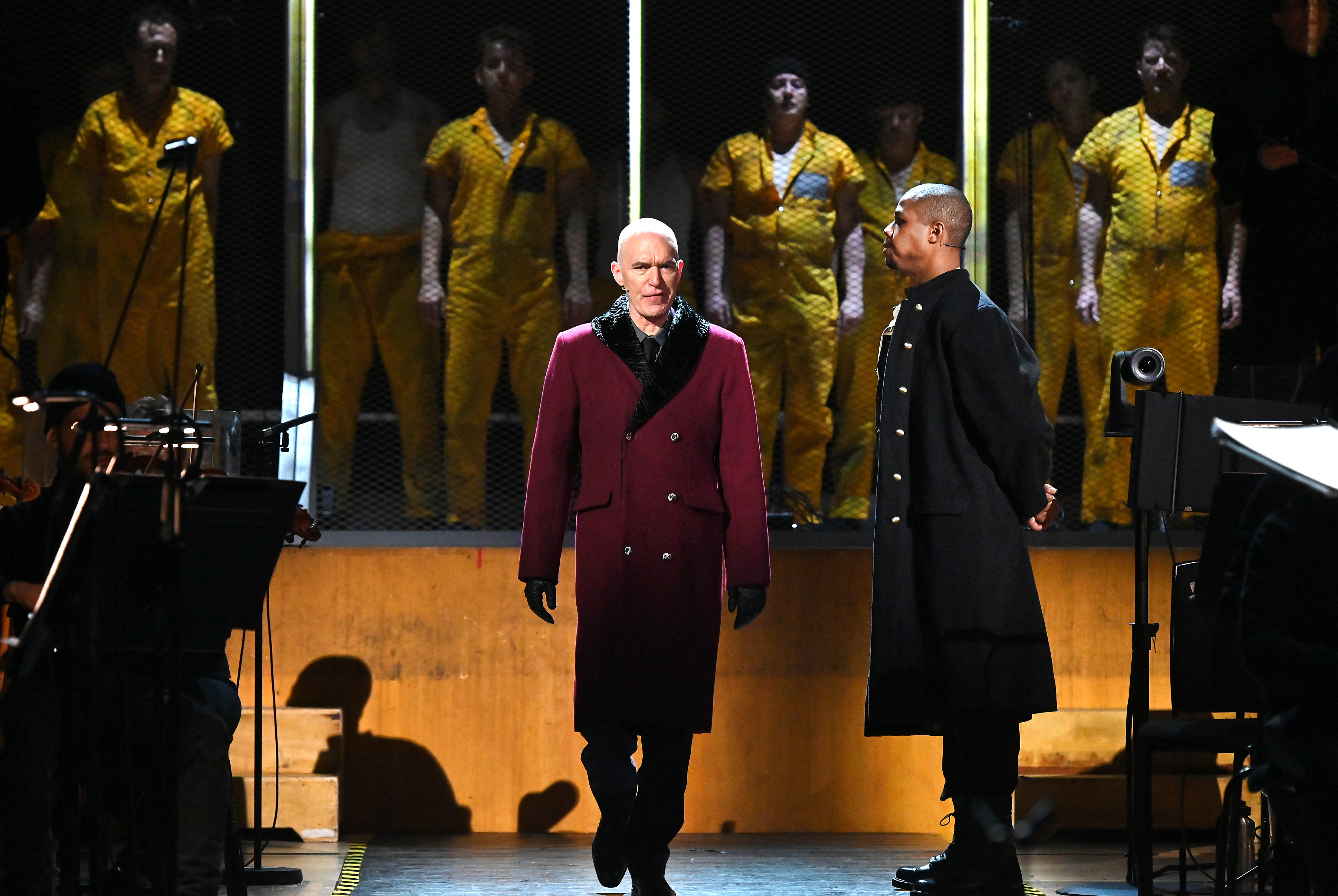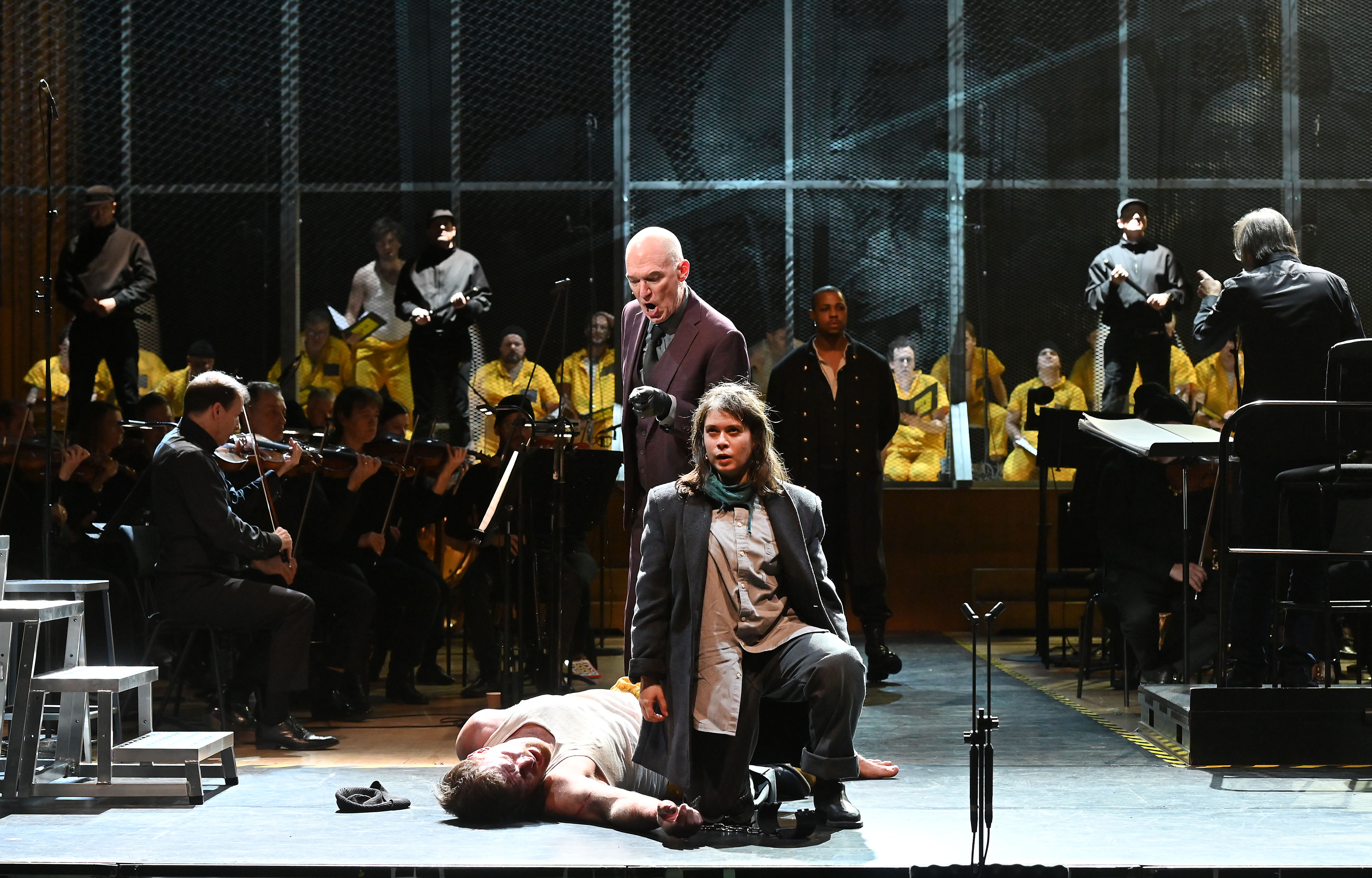You can see the temptation. With three different versions and four different overtures to choose from, as well as all that spoken dialogue to cut, substitute or omit, Beethoven’s Fidelio has always been a Choose Your Own Adventure sort of opera – a work, like Hamlet, that we shape and reshape in our own image. With so much agency available, so many fissures and footholds in this troubled piece, perhaps it was inevitable that someone would go all the way, jettison the score entirely and start from scratch.
This is exactly what Pulitzer Prize-winning composer David Lang has done. His prisoner of the state takes “the skeleton of Fidelio” and builds an entirely new work from it. What remains is clothed in a fresh score, through which we can still trace the outline of Beethoven’s drama of a wife who disguises herself as a boy and takes a job in the prison where her husband is being held by his corrupt political rival.
It starts strong. Lang, a founding member of New York’s influential new-music collective Bang On A Can, has an instinct for texture, deploying his large orchestra, chorus and cast with lean specificity. There are echoes of John Adams but also Louis Andriessen, Arvo Part as well as Philip Glass in his generous, affirmative minimalism. The harmonic language here is simpler than ever before, right at the junction of musical theatre and contemporary opera. Amplification (necessary if smaller voices aren’t to be crushed under the motoric force of the on-stage orchestra) seems a shame though, de-humanising an opera that’s all about humanity stripped down to its naked essence.

But is it enough? Certainly not to banish memories of Beethoven at his best: the unsettling timpani rumble in the dungeon scene and Florestan’s ecstatic musical release, Leonore’s “Abscheulicher!”, Act I’s mesmerising quartet. Lang’s self-fashioned libretto – simplicity too often straying into banality, its borrowed philosophies undigested – offers too flimsy a scaffolding for a work with big thematic ambitions, while the score seems just too pat to hold the story’s many contradictions and questions. Beethoven’s Fidelio is a fractured, fissured, provisional work of genius. Lang’s prisoner is smoothly polished, efficient, finite.














Add comment